Humanities & Social Sciences
Over 2,000 Attend Makerere’s Dialogue on Traditional Spirituality, Herbal Medicine, Witchcraft and Questions of Truth
Published
2 months agoon
By
Jane Anyango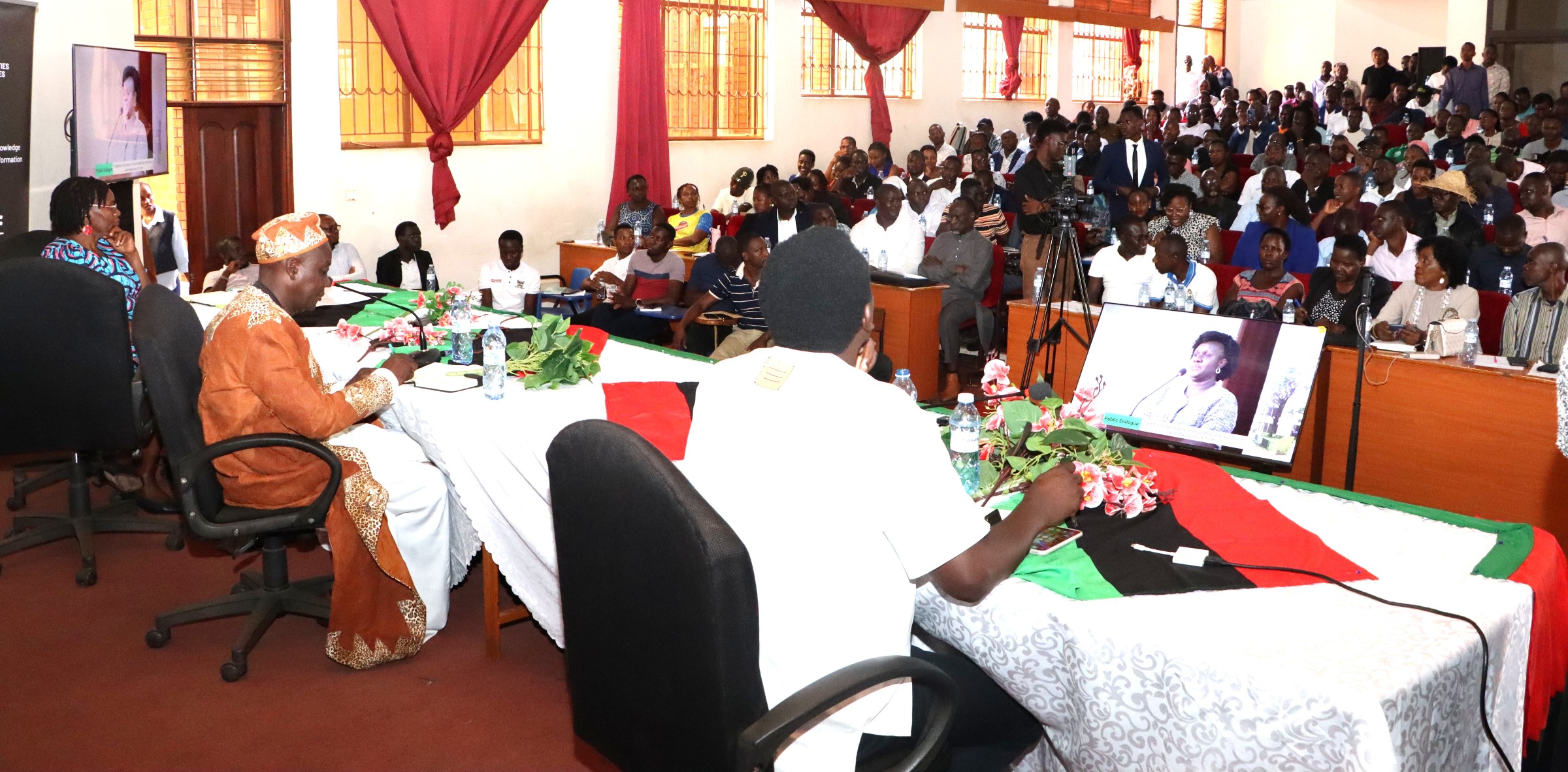
Kampala | Makerere University 29th April 2025
In one of the most intellectually provocative events in recent memory, over 2,000 participants—online and in person gathered at Makerere University on Tuesday for a historic public dialogue titled “Traditional Spirituality, Herbal Medicine, Witchcraft and Questions of Truth.” The forum, hosted by the College of Humanities and Social Sciences (CHUSS), drew academics, students, researchers, spiritual practitioners, and members of the public to explore issues often considered taboo in formal education.
By 2:00 pm, the College of Engineering, Design, Art and Technology’s Conference Hall was filled beyond capacity, forcing latecomers to seek alternative venues or follow the conversation through livestreams. Zoom was capped at 500 users before the official start, while over 1,000 more followed via YouTube. The dialogue extended into the evening, with audiences riveted for more than five hours.
Clash of Paradigms: Philosophy Meets Spiritual Practice
At the heart of the event were two divergent but deeply respected voices: Dr. Jimmy Spire Ssentongo, philosopher, ethicist, and renowned cartoonist, and Dr. Yahaya Hills Kagali Sekagya, a traditional spiritualist, herbalist, and trained dental surgeon with a PhD in Public Health. Sekagya also studied Law.
Decolonizing Knowledge and Defending Indigenous Science
Dr. Sekagya, Director of PROMETRA Uganda and a global voice in traditional medicine, provided a nuanced defense of African spirituality and indigenous healing practices. Moving fluently between biomedical terminology and metaphysical concepts, he highlighted the depth and legitimacy of knowledge embedded in African cosmologies.
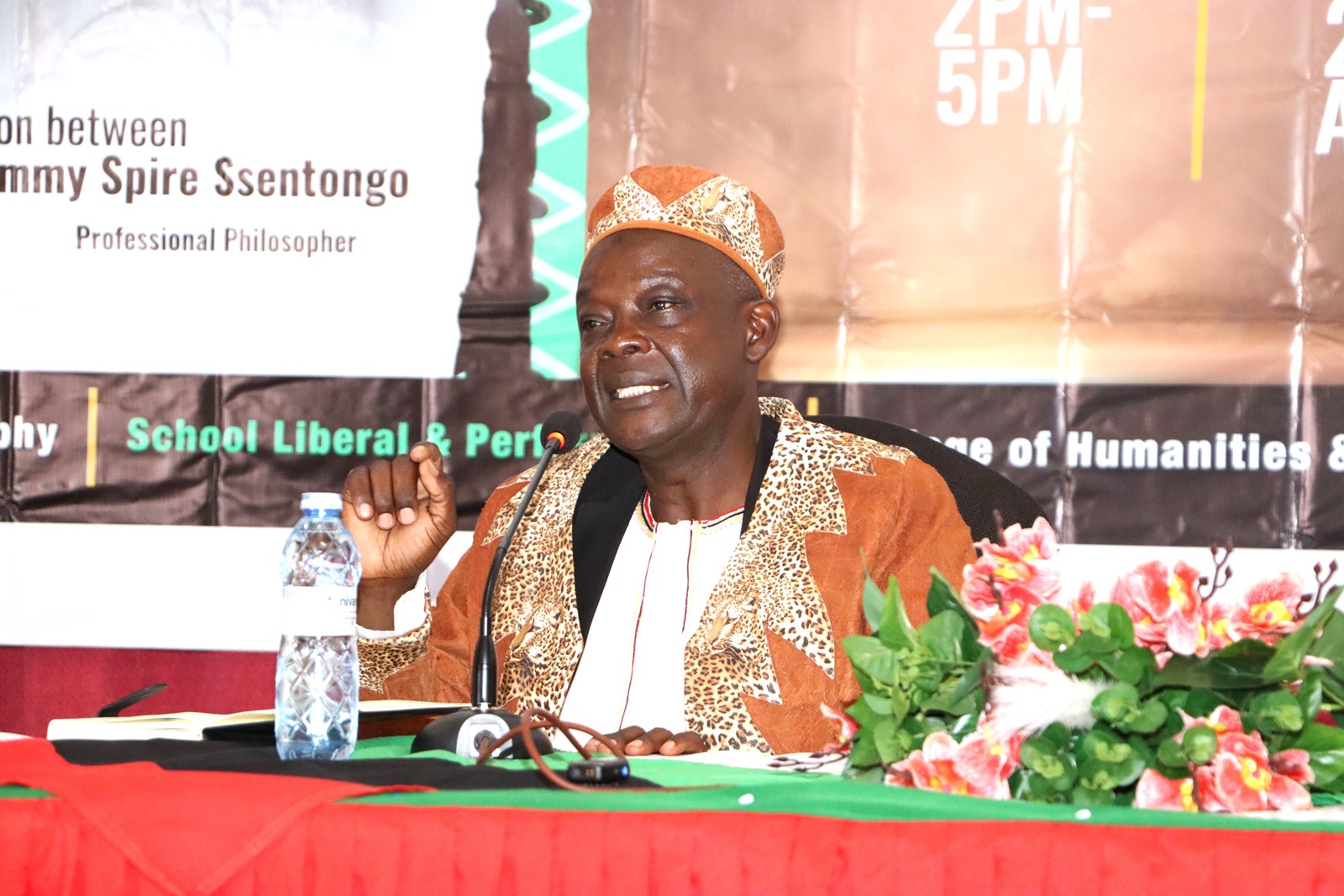
Although often judged by his appearance—he wore a spiritual robe during the event—his academic and medical credentials challenged stereotypes about traditional healers. Many who initially dismissed Sekagya as a “witch” based solely on his attire, were shocked upon hearing of his scientific training.
A Dialogue That Defied Boundaries
Their dialogue dissected the boundaries between indigenous healing systems, spiritual worldviews, modern science, and Western rationalism. The discussion traversed numerous academic and epistemological fields—philosophy, sociology, engineering, religion, psychology, and medicine—emphasizing that complex issues such as truth and healing cannot be understood through isolated disciplines. Both speakers called for an integrative approach to knowledge that includes the arts, humanities, and traditional sciences alongside STEM.
The key take away was that, “Knowledge is not confined to university departments. We need philosophy to understand medicine, and we need spirituality to understand psychology. The human experience is too complex for a single lens.”
Dr. Jimmy Spire Ssentongo: “The More You Know, the More Knowledge Humbles You”
Dr. Jimmy Spire Ssentongo delivered a powerful address on the necessity of openness, intellectual humility, and epistemic justice . He was gave the motivation behind hosting the public dialogue interrogating African spirituality, herbal medicine, and the boundaries of science.
Dr. Ssentongo opened with a moment of synchronicity involving the name “Augustine,” moving into a parable about Saint Augustine and the mystery of divine knowledge. He used this story to underline a key point: that human understanding is always partial, and that true wisdom begins with acknowledging how little we truly know.
“We always want to imagine that we know the world so well,” he said. “But we fail to acknowledge that the world is so complex. There are more things than we can ever know.”
Drawing from Socrates’ declaration—“I know that I don’t know”—Ssentongo urged fellow academics and participants to adopt a humble posture toward knowledge, rejecting the arrogance that comes with narrow-mindedness or disciplinary silos.
He addressed the backlash surrounding the event, including accusations of promoting witchcraft, with sharp critique and clarity:
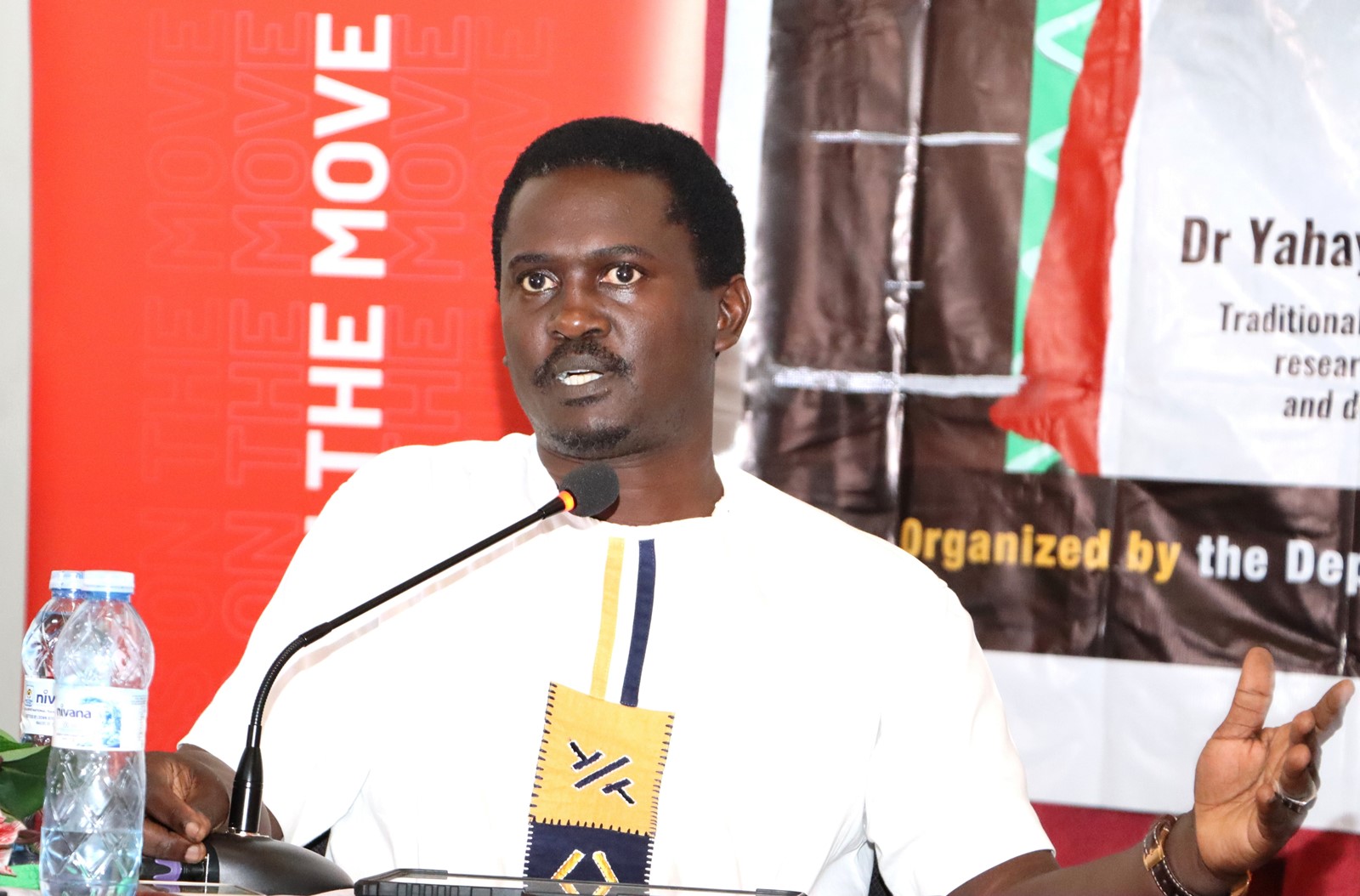
“You don’t have to agree with something to understand it… It’s our unwillingness to engage that empowers ignorance and exploitation—whether in herbal medicine or religion.”
Ssentongo challenged the binary thinking that dominates academia and social discourse, particularly how indigenous knowledge is marginalized through labels like “alternative medicine.”
“That language is not innocent,” he warned. “It has already created the main—the authentic—and the alternative. And we keep building these binaries which are very detrimental to understanding.”
He lamented the politics of knowledge production, pointing out that powerful interests from pharmaceutical companies to religious establishments often dictate what is recognized as legitimate knowledge, thereby stifling critical inquiry into African spiritual and healing practices.
In a moment of warmth and humility, Ssentongo lauded guest speaker Dr. Sekagya for his depth of knowledge and gracious composure, despite being prematurely judged based on appearance:
“We profile people based on what’s already in our minds. When you do that, you build a wall that blocks understanding.”
He closed with gratitude to the organizing teams, university leadership, and the patient audience, reminding all that the session’s six-hour length was testament to the power of curiosity, intellectual freedom, and dialogue.
“The more you know, the more knowledge humbles you,” he said. “And I love humble people—that’s the sign of true education.”
Principal Nkabala Applauds Groundbreaking Dialogue on Truth and Decolonisation
While closing the dialogue, Associate Professor Helen Nambalirwa Nkabala, Principal of the College of Humanities and Social Sciences (CHUSS), reflected on the boldness of the topic, Prof. Nkabala admitted initial concerns over whether enough publicity had been done for such a sensitive conversation. But her concerns quickly gave way to admiration for the depth and courage of the discussions.
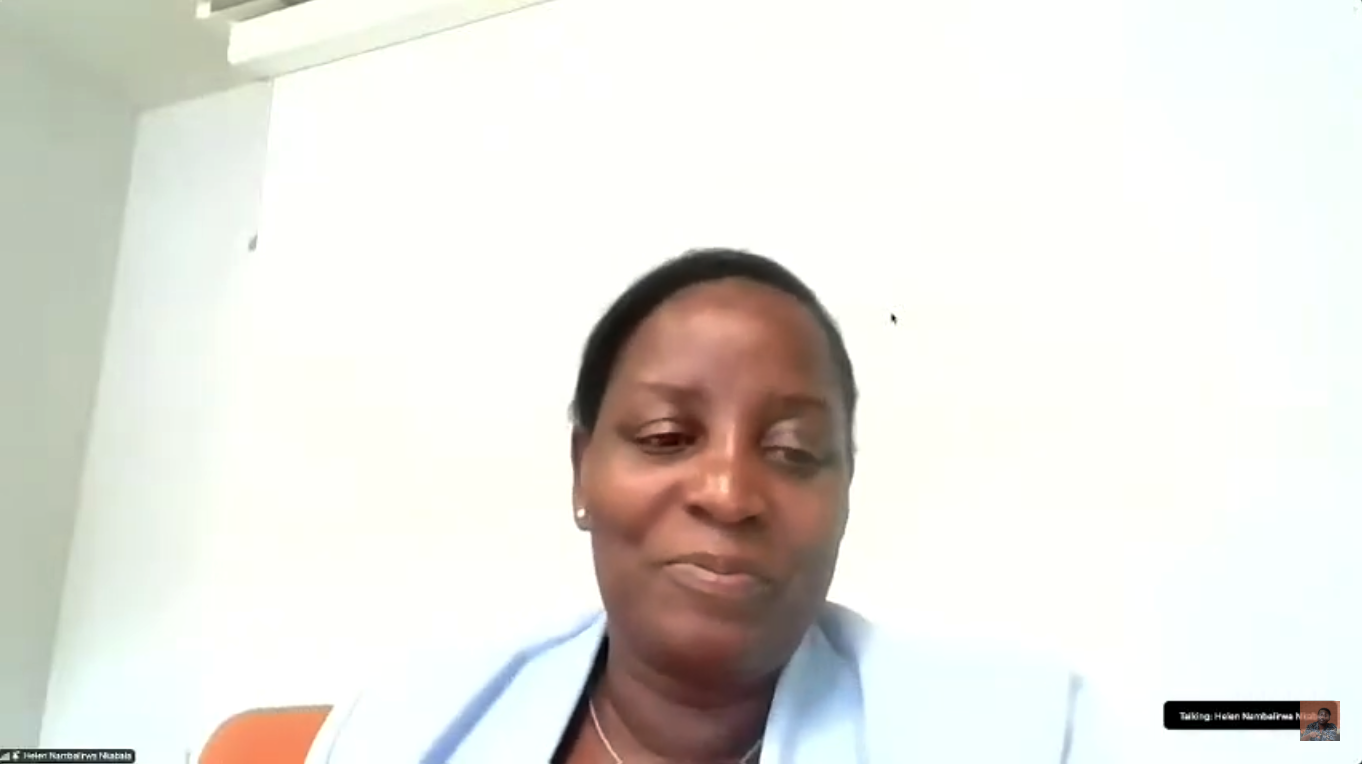
“This is the very reason the college exists,” she said. “We are not afraid of speaking about the things many are afraid to talk about.”
She praised the dialogue for achieving the core mission of the Humanities and Social Sciences: to broaden perspectives, enhance global awareness, and deepen our understanding of human behaviour. With confidence, she noted that all participants—whether in-person or online—had walked away transformed in their thinking.
Prof. Nkabala commended Dr. Sekagya for integrating science with cultural and spiritual frameworks, and Dr. Spire Sentongo for initiating a conversation that challenged binaries and inspired creativity. She mentioned emerging ideas such as “deep green spirituality” and renewed interest in electromagnetics, highlighting how the discussion had sparked innovation beyond the humanities.
“This shows that the conversation we have had has really inspired people—and they are becoming more innovative than they would have wanted,” she remarked.
With gratitude, she acknowledged the CHUSS team, Makerere University management and all participants. Her message was clear: this was not a one-off event, but a starting point in a series of transformative engagements.
“Just watch this space,” she said, promising more impactful dialogues to come.
She then invited Deputy Principal Assoc. Prof. Eric Awich Ochen to offer closing sentiments on behalf of the college, adding a “physical touch” to the collective appreciation for such a powerful and memorable gathering.
One of the Most Impactful Symposiums at Makerere: Deputy Principal Applauds Courageous Dialogue Bridging Humanities and Science
Using a metaphor from astrophysics, Prof. Awich likened human understanding to the work of space telescopes like Hubble, which, despite operating for decades, can only capture a fraction of the vast cosmos.
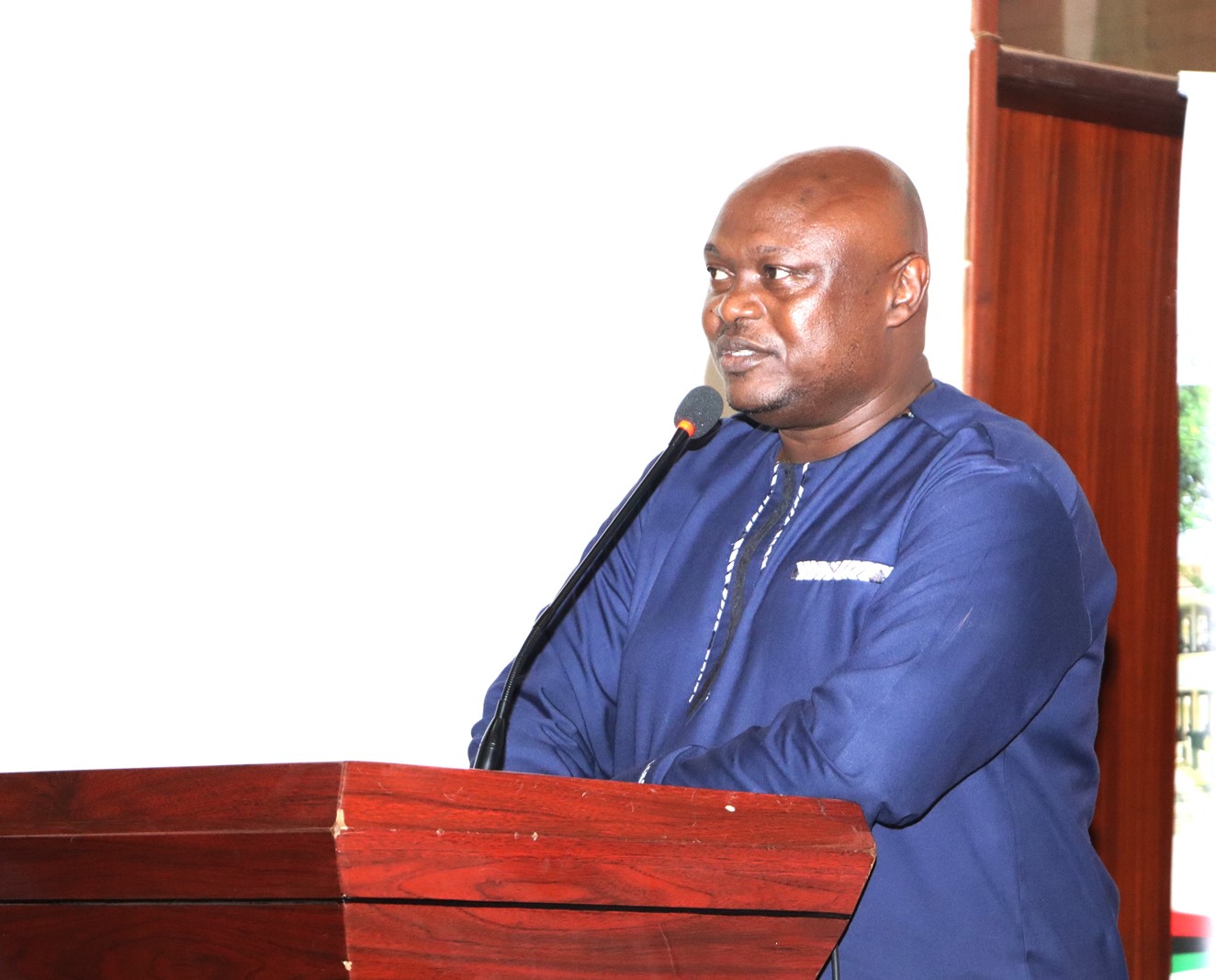
“Even what the telescope is showing us is less than 1% of what’s out there,” he remarked. “That tells you how little we know—and how much more there is to question, explore, and understand.”
He also offered warm praise to Dr. Sentongo, whose public image as a cartoonist and columnist is matched by a deeply intellectual and humble personal presence. Sentongo, he revealed, is preparing to exhibit new creative work that continues this exploration of truth and identity.
The deputy principal applauded the panelists and especially Dr. Christine Mbabazi Mpyangu, the symposium’s moderator from the Department of Religion and Peace Studies, for guiding the complex conversation with clarity and balance. He described her selection as the “best choice that could ever happen for this symposium.”
Prof. Awich also emphasized how the themes of the day—truth, spirituality, medicine, and the decolonisation of knowledge—are not merely academic curiosities but essential areas of inquiry for understanding African identity, history, and global positioning.
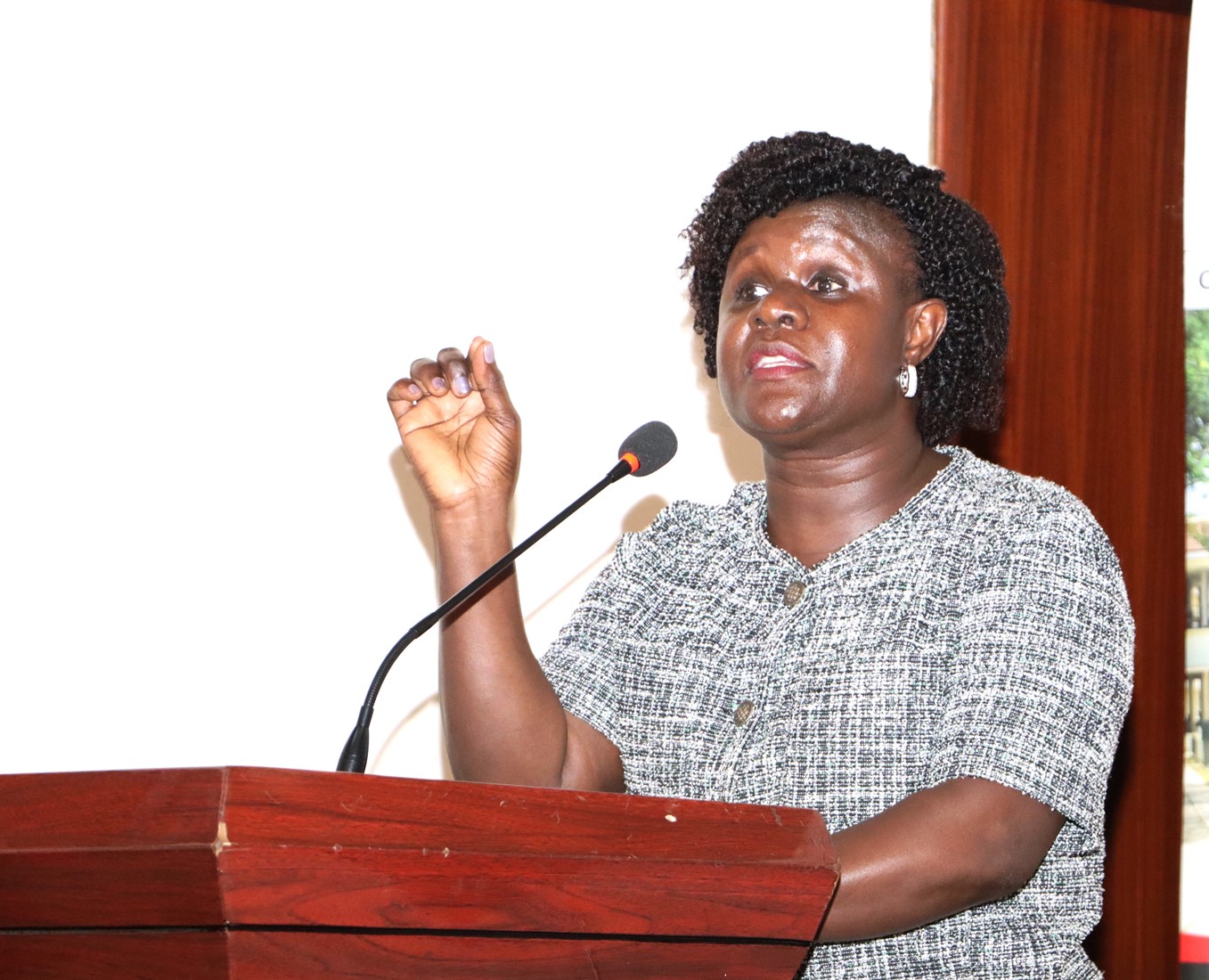
“This is very good for our students,” he said. “It’s humbling, and it’s intellectually nourishing. I have been deeply moved and educated by this dialogue.”
He closed by inviting all participants to “watch this space” for future dialogues that will continue to push intellectual boundaries and make CHUSS a cornerstone of Makerere’s global thought leadership.
“Thank you again for coming. Whether you were here physically or joined us online, we are grateful. And I promise, this is just the beginning.”
A Bold Dialogue on Truth, Decolonisation, and African Knowledge Systems
Dr. Pamela Khanakwa, Dean of the School of Liberal and Performing Arts at Makerere University, called on scholars, students, and the wider public to embrace African epistemologies, challenge colonial legacies, and confront entrenched biases in the understanding of truth and science.
“Why should we fear these conversations?” Dr. Khanakwa asked. “Our dialogue today seeks to interrogate the little understood and often blurred lines between traditional African spirituality, herbal medicine, and witchcraft.”
The she said formed part of Makerere‘s broader initiative to decolonise education and expand the frontiers of knowledge by re-examining the role and validity of indigenous African practices in modern society and a reclamation of African intellectual space
Khanakwa’s address was not merely ceremonial; it was a scholarly critique of how colonial regimes distorted African worldviews and knowledge systems, relegating them to the margins of legitimacy.
“What was African—our indigenous knowledge—was labelled barbaric, primitive, demonic, evil,” she said. “Meanwhile, Western belief systems, especially biomedicine, were centralized as the standard of progress and truth.”
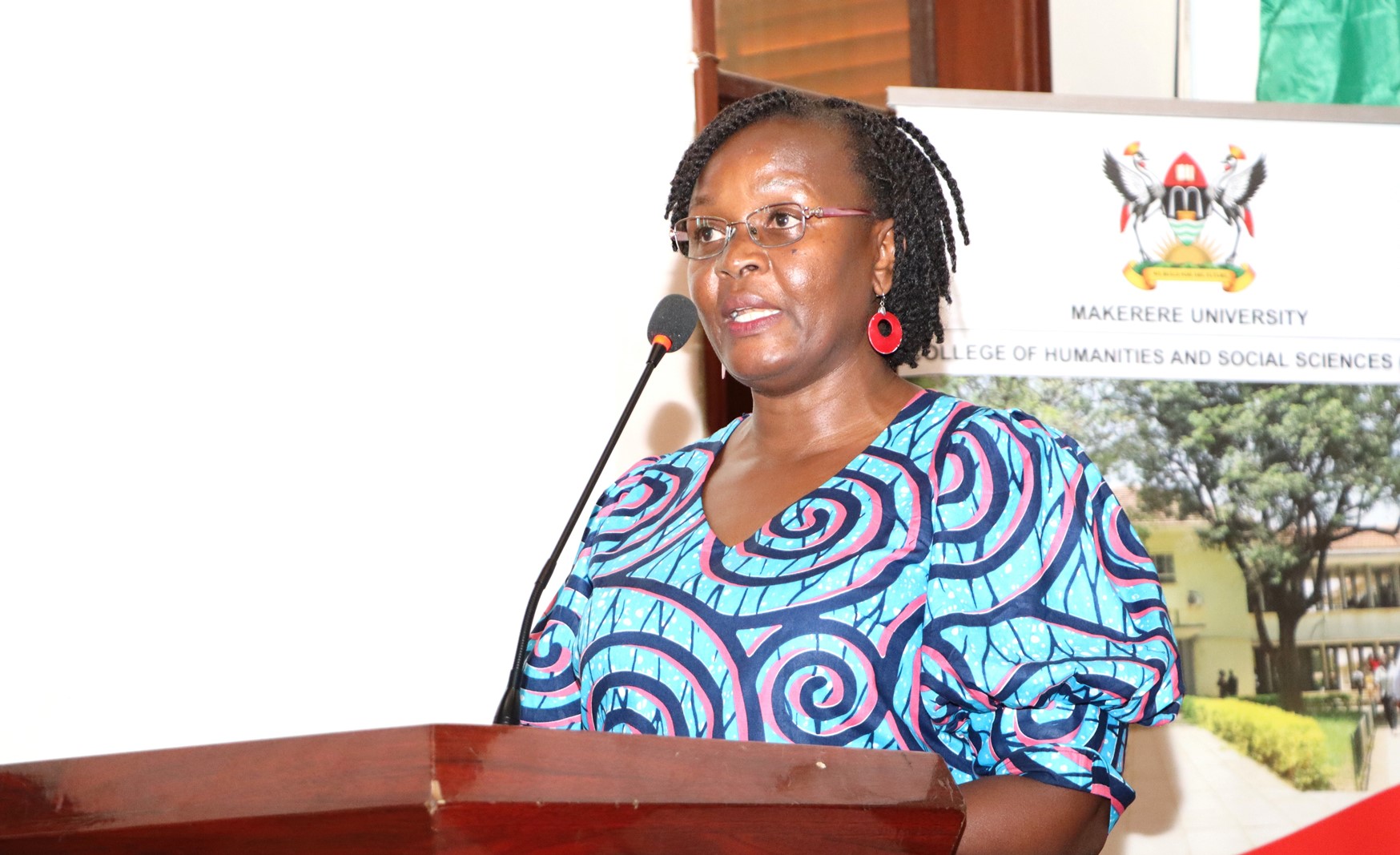
She pointed to laws like Uganda’s Witchcraft Act of 1957 and Zimbabwe’s Witchcraft Suppression Act of 1899 as colonial tools used to criminalize African religious and healing practices, reinforcing the hierarchy between Western science and African spirituality.
These laws, she noted, continue to influence public policy and education, often excluding or diminishing traditional healing and metaphysical systems that millions on the continent continue to rely on.
Blurring the Line Between Science and Spirituality
Dr. Khanakwa challenged the false dichotomy between science and non-science, noting that many African healing practices dismissed as superstition may simply be sciences that remain understudied or misunderstood.
“How about if what we consider witchcraft is actually science which has not yet been unlocked?” she asked, raising the example of traditional bone-setters who reportedly mend fractures remotely—an observation met with nods and murmurs of agreement from the audience.
She also referenced the lingering stigma within academic institutions, sharing a conversation with a colleague in veterinary sciences who was wary of interacting with social scientists because of perceived connections to witchcraft.
“This fear and ridicule are rooted not in reason, but in the colonial devaluation of African knowledge,” Khanakwa explained and called for critical appraisal, not blind reverence.
While deeply rooted in the cultural reclamation agenda, Khanakwa emphasized that the event was not a platform for blind celebration of all traditional practices. Rather, it was a space for critical epistemic appraisal—an honest, analytical exploration of what constitutes truth, and who gets to define it.
“We are not just here to romanticize indigenous knowledge,” she said. “We are here to examine it rigorously, question the boundaries, and reclaim intellectual agency.”
She framed the dialogue as both an academic and civic responsibility, rooted in the liberal arts tradition of open-minded inquiry and debate- a knowledge without borders
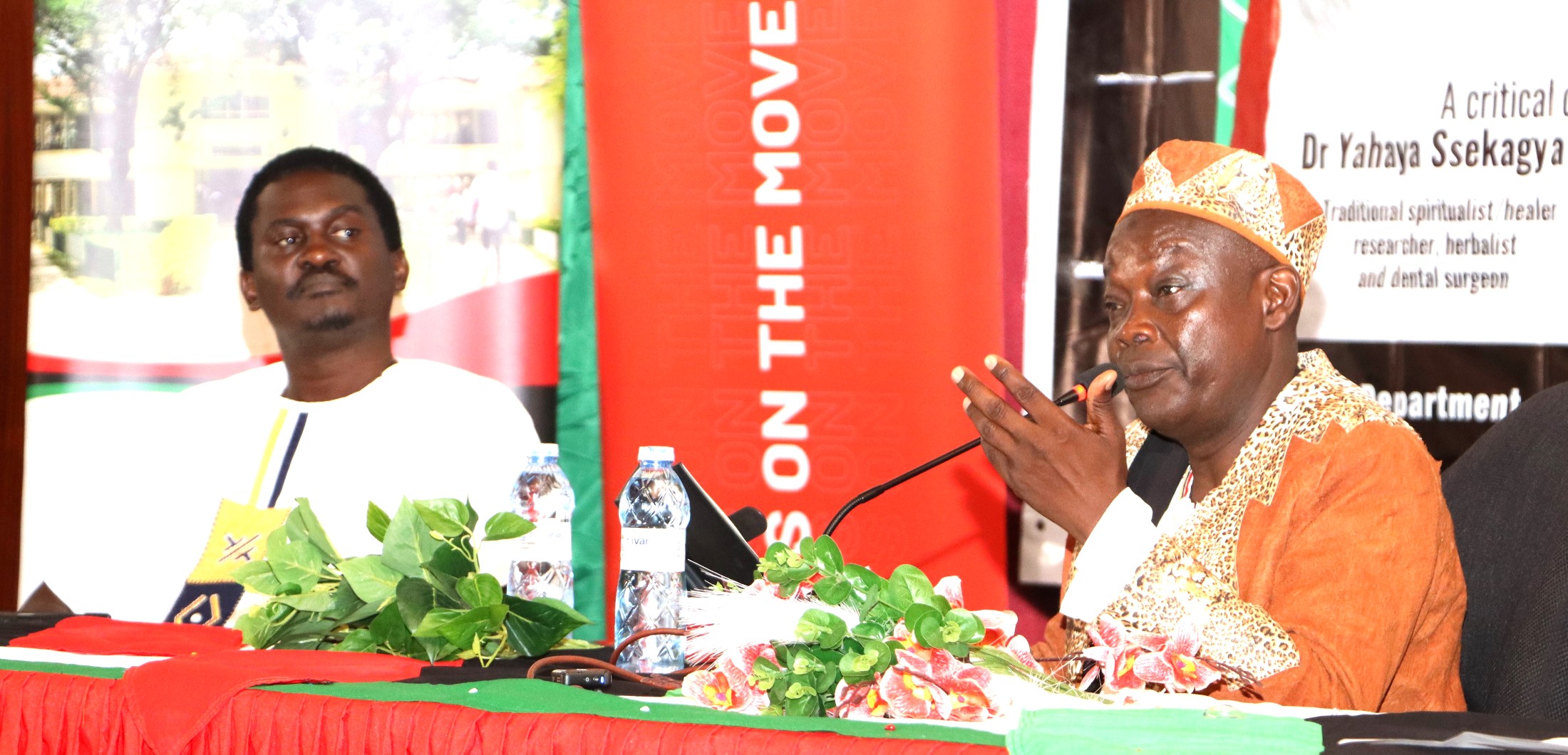
In a nod to African communalism, Dr. Khanakwa closed her remarks with an invitation to inclusivity and collective growth:
“In an African house, there is always space for one more. You cannot lock someone out in the rain because you say the house is full.”
The spirit of intellectual hospitality, she argued, must extend to epistemological spaces—where truth is not confined to laboratories or lecture halls in the Global North, but also resides in shrines, herbs, rituals, and oral traditions passed down through generations.
As she welcomed the day’s speakers, Khanakwa reiterated Makerere University’s commitment to being more than an academic institution: a site of African self-discovery, healing, and intellectual sovereignty.
Questioning the Scientific Method and Medical Colonialism
Dickson Kanakulya, Head of the Department of Philosophy at Makerere University, issued a critique of society’s fear of “uncomfortable knowledge” and positioned Makerere as a courageous leader in pushing intellectual frontiers that others fear to approach.
“Makerere is not fearful to explore all aspects of knowledge,” Dr. Kanakulya declared. “That is what has made this institution great—we ask the questions that others are afraid to ask.”
The event—attended by over 2,000 people both in-person and online—was part of a growing series of intellectual forums led by the College of Humanities and Social Sciences (CHUSS) that challenge conventional paradigms of science, truth, and African knowledge systems.
Dr. Kanakulya used the platform to interrogate the longstanding hierarchies that have historically labeled indigenous knowledge as superstition or witchcraft. He drew attention to how rituals, symbols, and metaphysical practices in African traditions have been ridiculed, while similar elements in Western religious and scientific institutions are normalized or revered.
“Why is it that when a Pope wears red or conducts elaborate rituals, it’s considered sacred—but when an African elder wears a leopard skin, it’s ‘witchcraft’?” he asked. “What is the psychoanalytic message behind those colors, garments, and rituals?”
Referencing comparative burial rituals—from Vatican ceremonies to the traditional burial of a Omutaka wrapped in over 200 barkclothes—he questioned the global double standards that determine which practices are called ‘holy’ and which are dismissed as irrational.
“We are not just asking religious questions—we are asking epistemological questions: who defines what knowledge is, and who gets excluded?”
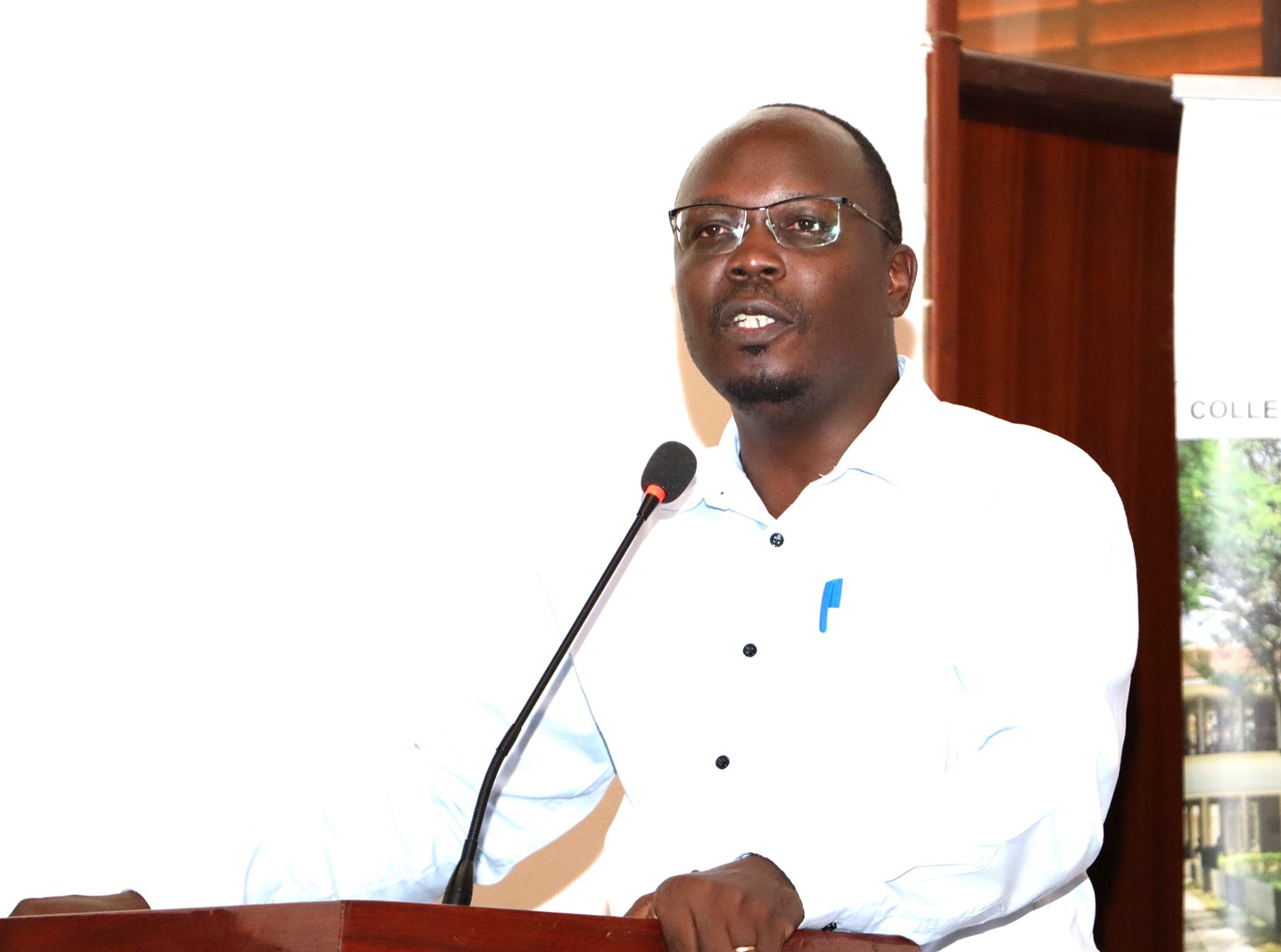
Perhaps most provocatively, Dr. Kanakulya challenged blind reliance on what he called the “so-called scientific method,” especially in light of the global COVID-19 pandemic.
“COVID-19 raised a very serious question: does the scientific method work?” he asked. “When the pandemic struck, even our most decorated scientists ran and hid. Vaccines were promised, but not available. And yet, African herbal knowledge—like Professor Ogwang’s COVIDEX—saved lives.”
He praised Ogwang’s use of traditional medicinal knowledge passed down by his mother to develop a treatment that gained national certification and public trust during the health crisis, even while being initially discouraged by the scientific establishment.
Kanakulya described this contradiction as “medical colonialism”—a phenomenon where Western institutions continue to control narratives around health, healing, and legitimacy, despite relying on indigenous knowledge for drug development.
“Over 60% of pharmaceutical drugs have roots in traditional herbal medicine. Yet we are told the version made in the lab is superior to the one made by God. Why?”
Echoing themes from thinkers like Descartes, Richard Rorty, and Albert Einstein, Dr. Kanakulya urged attendees to reconsider the very nature of knowledge and reality. He connected traditional African metaphysics to emerging fields like quantum physics, highlighting how both challenge fixed notions of objectivity and material reality.
“Traditional African science believes that molecules and cells are constantly absorbing information—through light, sound, and energy. That’s what quantum mechanics now confirms,” he explained. “When elders say a stone remembers what happened, and science says DNA remains at crime scenes, are we not talking about the same phenomenon through different lenses?”
He raised challenging philosophical comparisons: summoning a person’s spirit in a water basin vs. seeing their face on a smartphone screen. Both, he argued, deal with unseen connections and transmissions of information. So, which one is called witchcraft—and why?
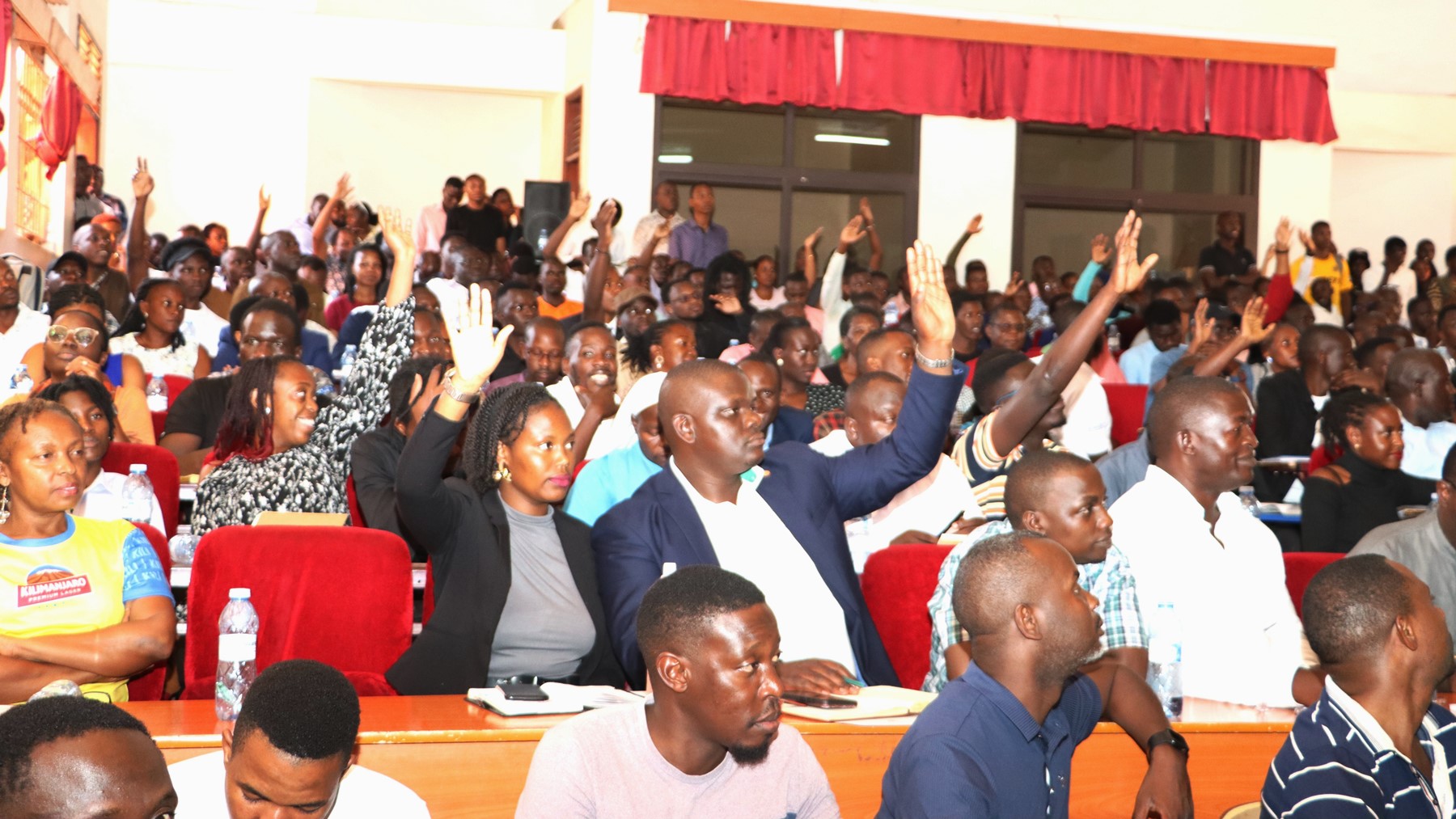
“The question of witchcraft is a question of epistemology. It’s not just a cultural issue; it’s about how we define reality and truth. It is time to decolonize those definitions.”
Kanakulya also connected philosophical inquiry to policy questions, especially the right to health in African constitutions. He noted that 80% of Africans rely on traditional medicine, yet it remains underfunded, un researched, and stigmatized.
“If the right to health is a human right, then herbal medicine must be mainstreamed,” he said. “We cannot continue to rely on knowledge produced in Western laboratories when we have solutions rooted in our own environment and history.”
Citing rising rates of non-communicable diseases among Africans under 30, he warned that Africa’s future is being shaped by pharmaceutical industries and researchers who are not accountable to local communities.
“They have our DNA in labs. They are designing drugs for African genes. That is medical colonialism. And you think you are free because you raise a flag on Independence Day?”
Dr. Kanakulya concluded with a call to embrace philosophy as a tool for critical inquiry and emancipation.
“Philosophy asks the uncomfortable questions. Are you in love or are you dreaming? Are you alive or are you merely existing under illusions passed down to you?”
He urged the academic community to take seriously African forms of knowledge—including metaphysical and spiritual practices—and to move beyond outdated colonial binaries of science vs. superstition.
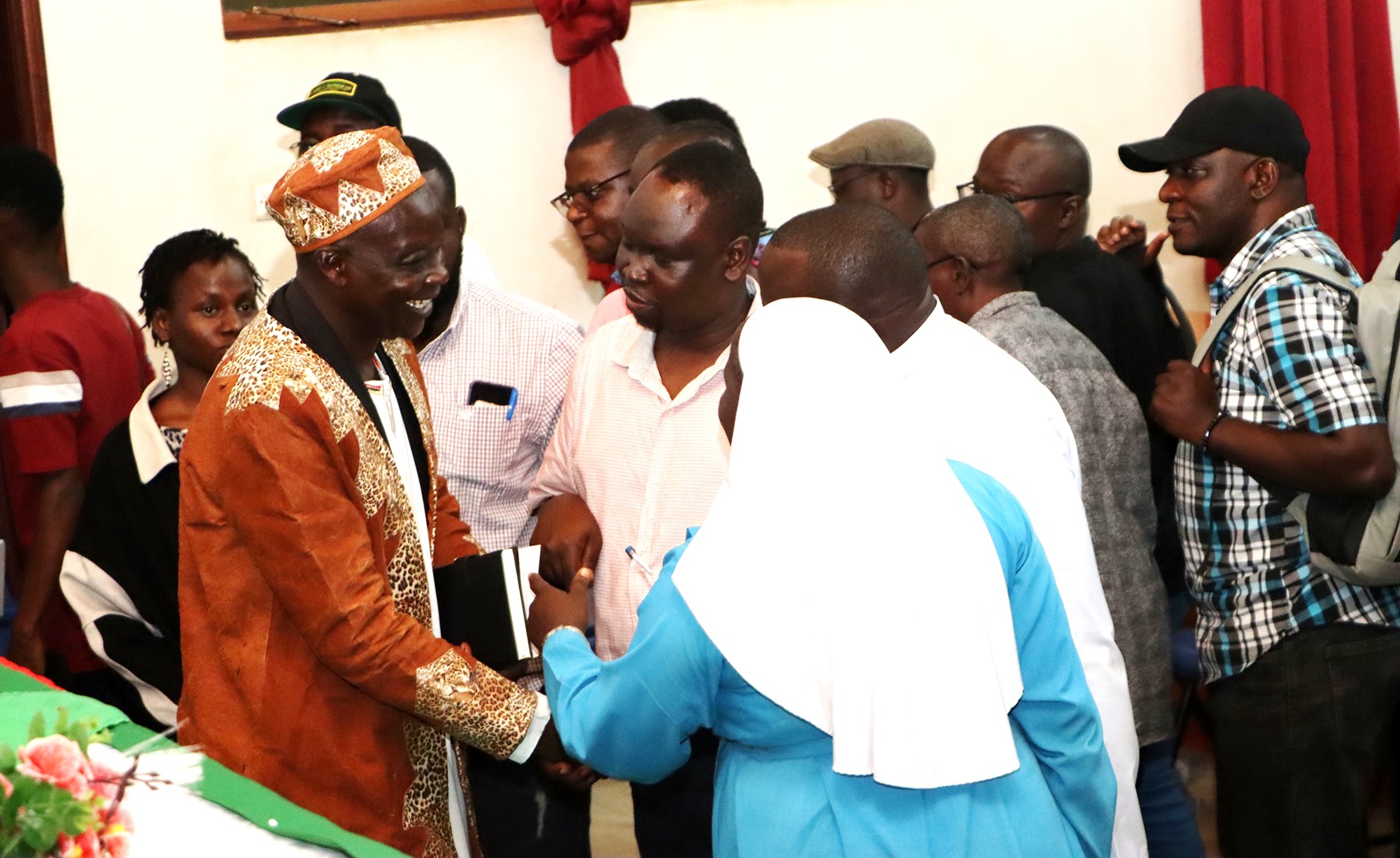
“Witchcraft is not just in shrines. It’s in churches, markets, and technology. The real question is not whether it exists—but how we understand it, and what truths we are afraid to see.”
The remarks set a powerful tone for the evening’s dialogue and reinforced the role of the Department of Philosophy as a leading voice in deconstructing knowledge hierarchies at one of Africa’s oldest universities.
Looking Forward
The event has sparked interest in more dialogues exploring spirituality, healing, and knowledge systems. Students and staff reportedly requested future sessions, including modules on electromagnetics in traditional healing and “deep green spirituality.”
As the sun set on Makerere Hill, the session ended not with closure, but with a challenge—one issued implicitly by every speaker and participant: to keep questioning, keep listening, and to rediscover the wisdom that centuries of erasure have tried to silence.
You can access the Public Dialogue, “Traditional Spirituality, Herbal Medicine, Witchcraft and Questions of Truth “ on YouTube Video embedded below.
Jane Anyango is the Communication Officer CHUSS
You may like
-
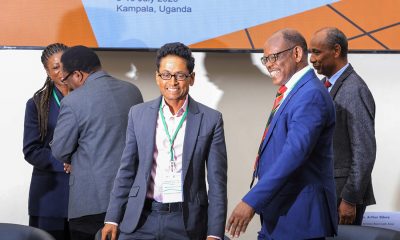

Makerere Hailed for Its Leadership in Health Policy and Knowledge Systems
-
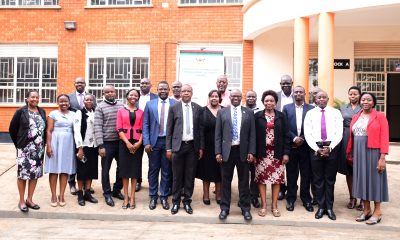

School of Business Conducts Strategic Leadership Training for Makerere University Managers
-
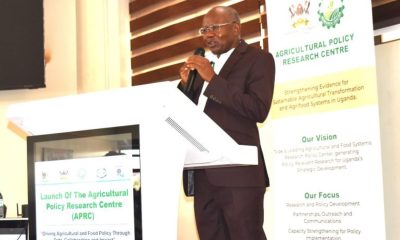

APRC Trains Graduate Students & Stakeholders in the Use of the African Agriculture Adaptation Atlas
-
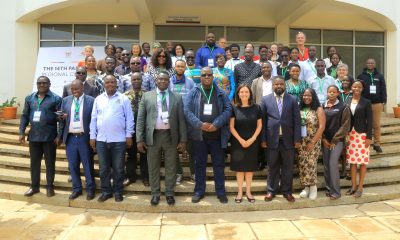

Harmonizing Africa’s Future through Musical Arts Education
-
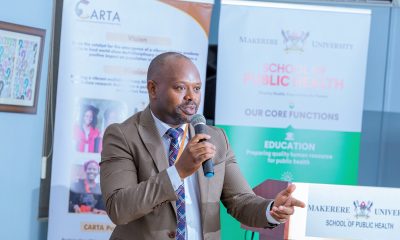

CARTA Focal Person Dr. Isunju Appointed to MakPress Editorial Board
-
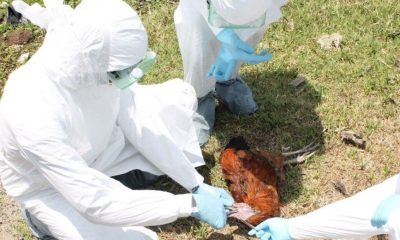

Advancing Regional Health Priorities Through the CARTA Research Hubs
General
Diploma in Performing Arts Admission List 2025/26
Published
1 week agoon
July 4, 2025By
Mak Editor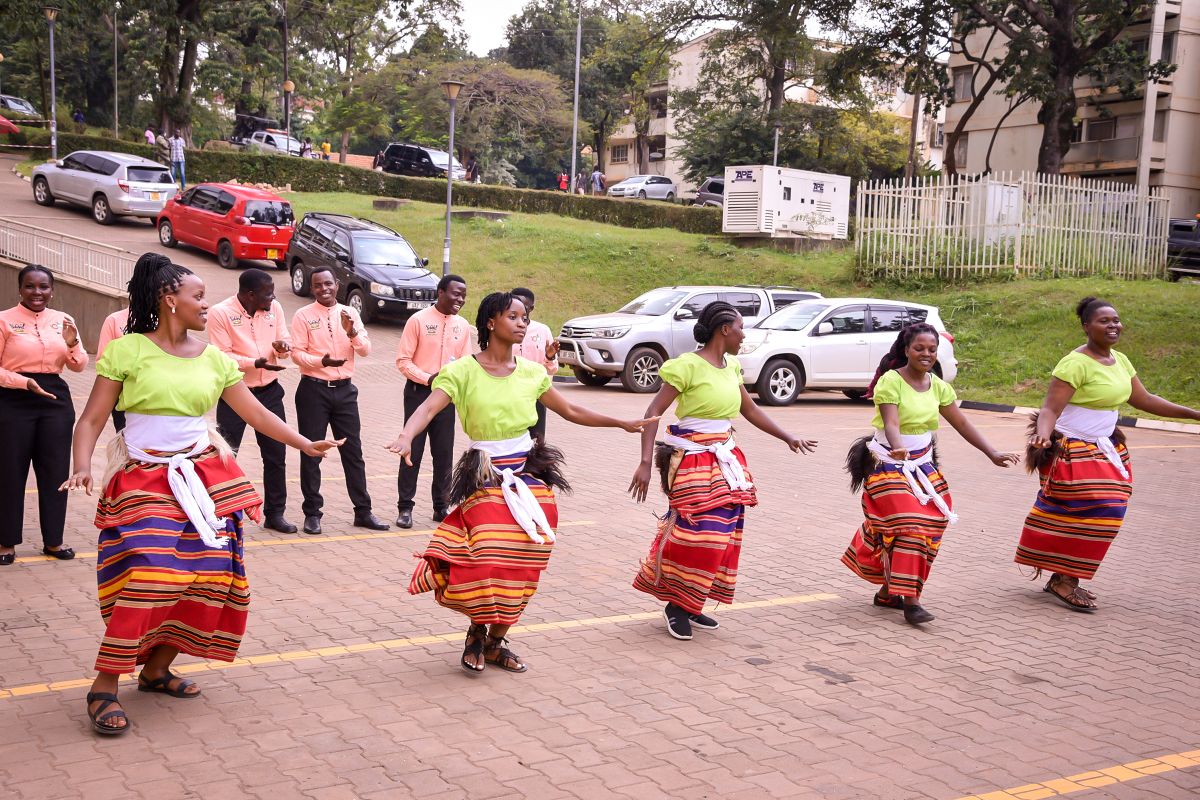
The Office of Academic Registrar, Makerere University has released the admission list of candidates who passed the special entry examinations for the Diploma in Performing Arts held on Saturday 17th May, 2025
The following have been admitted by the University’s Admissions Committee on Private Sponsorship for the 2025/26 Academic Year
General
Special Exam Results -Diploma in Performing Arts 2025/26
Published
2 weeks agoon
June 28, 2025By
Mak Editor
The results for the 2025/2026 special entry examination for the Diploma in Performing Arts held on Saturday 17th May, 2025. Candidates who scored a final mark of 50% and above passed the Examination and have been recommended to the university’s Admissions Committee for consideration.
Humanities & Social Sciences
CHUSS Graduate Symposium Showcases Research and Fosters Collaboration
Published
3 weeks agoon
June 20, 2025By
Mak Editor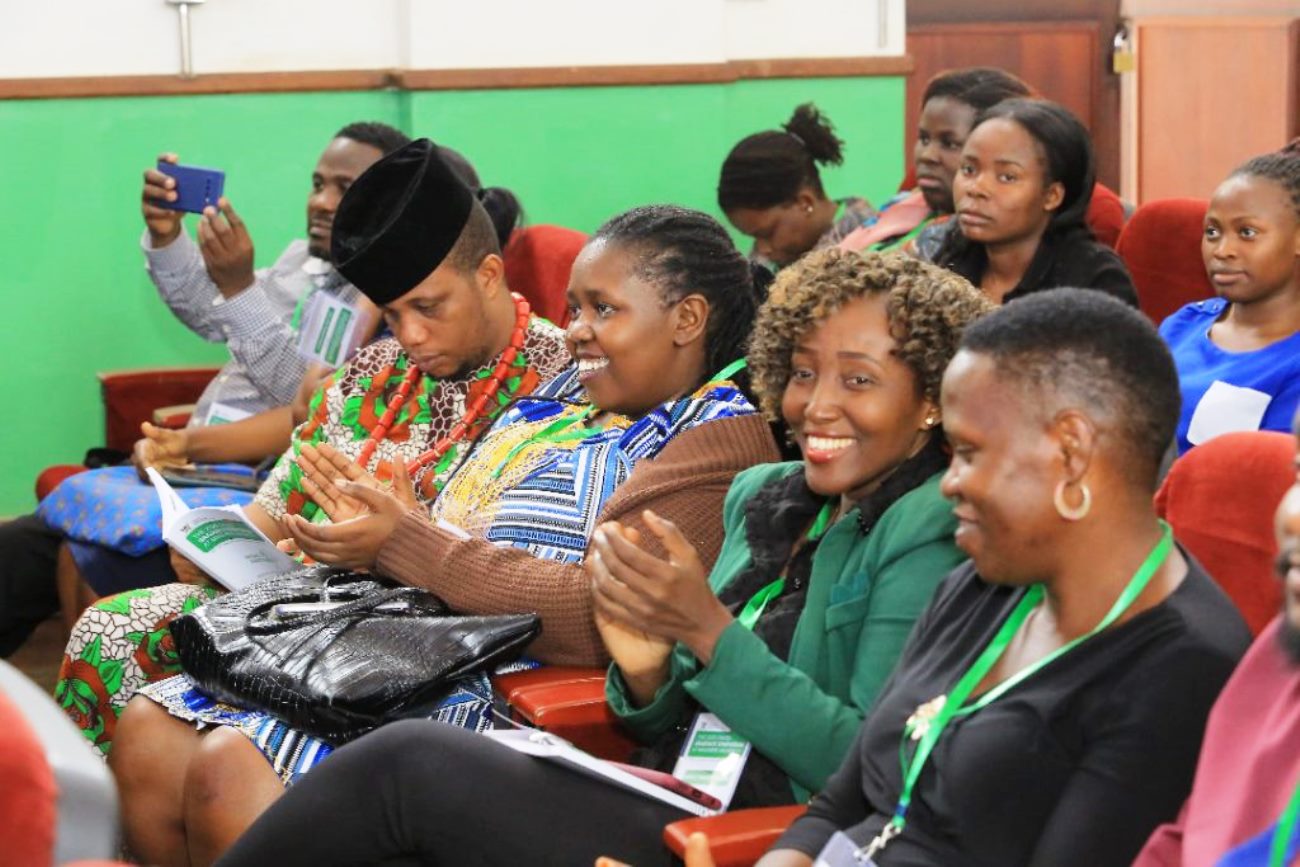
By Atwenda Nancy. E
Makerere University, June 20, 2025 — The College of Humanities and Social Sciences (CHUSS) is holding its 2025 Graduate Symposium from June 19 – 21, 2025, bringing together scholars, mentors, and graduate students in a spirited exchange of ideas, research, and academic collaboration.
The symposium, hosted at Makerere University, has provided a dynamic platform for PhD students to present their ongoing research, while also strengthening ties with sister universities and celebrating the achievements of the CHUSS Graduate School in nurturing the next generation of scholars.
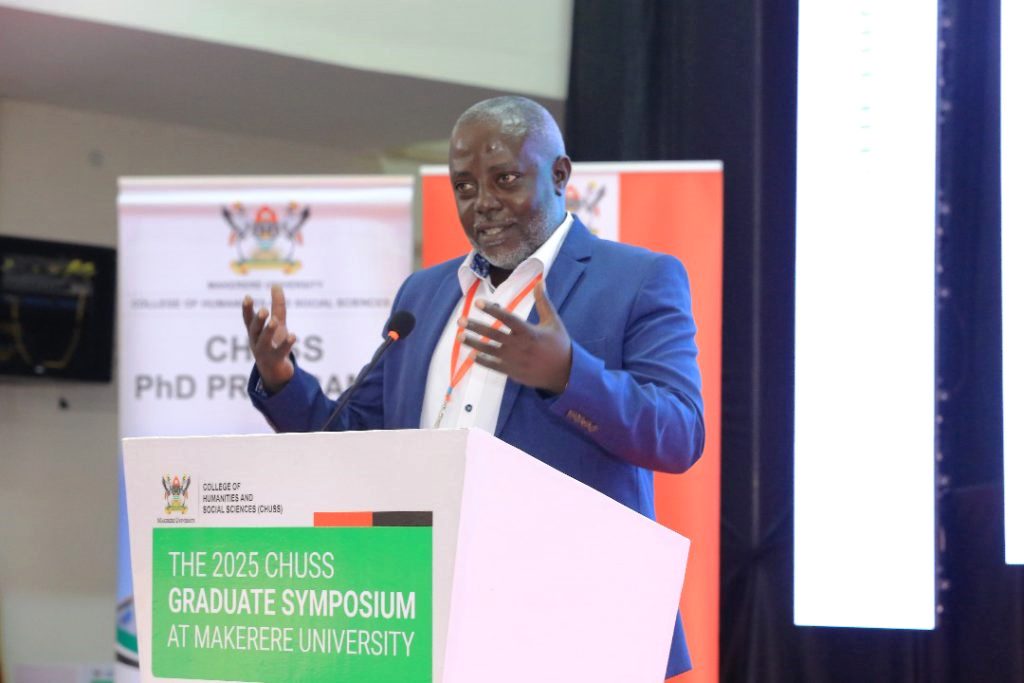
In his keynote address, Dr. Edgar Fred Nabutanyi welcomed participants and acknowledged the contributions of speakers from the previous day’s sessions, including Prof. Eric Awich Ochen (Deputy Principal, CHUSS), Dr. Peter Wekesa, and Dr. Zaid Sekito, among others. He emphasized that the symposium was not just a showcase of academic work, but a strategic platform to build partnerships and attract research funding.
“Generations must prepare for the next generation,” Dr. Nabutanyi noted, reflecting on life after PhD and the evolving role of Makerere University as a research-intensive institution. He praised department heads for their role in ensuring timely completion of graduate programmes and reiterated the college’s commitment to research excellence.
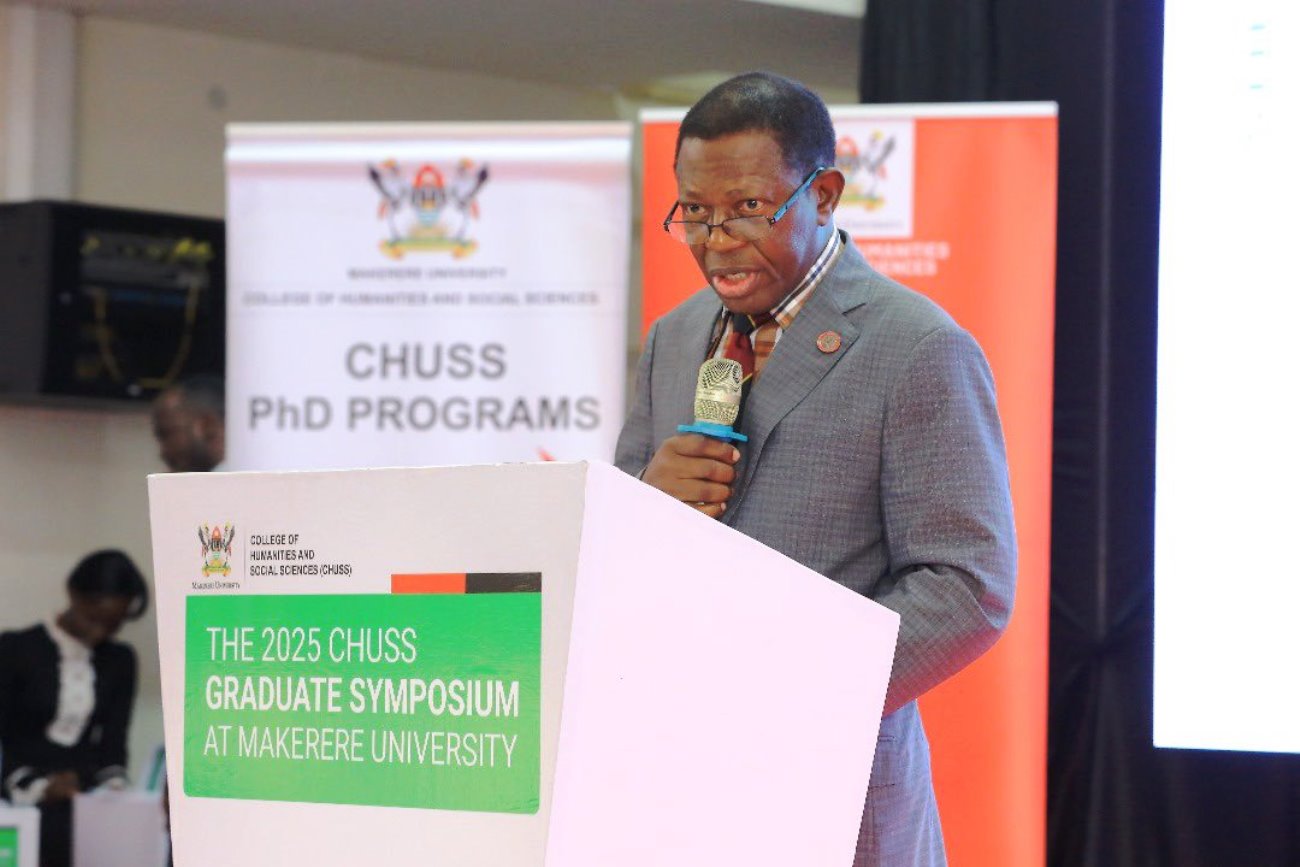
The event was officially opened by Prof. Buyinza Mukadasi, the Acting Deputy Vice Chancellor for Academic Affairs, who represented the Vice Chancellor, Prof. Barnabas Nawangwe. In his remarks, Prof. Buyinza highlighted the importance of research that is impactful and relevant to society.
“Research is unimportant unless it is relevant,” he stated. “If one conducts research that doesn’t benefit society, it becomes a waste of resources.” He urged graduate students to approach their academic work with purpose, noting that Makerere is not a “PhD factory” but a hub for innovation, with over 300 active PhD students registered.
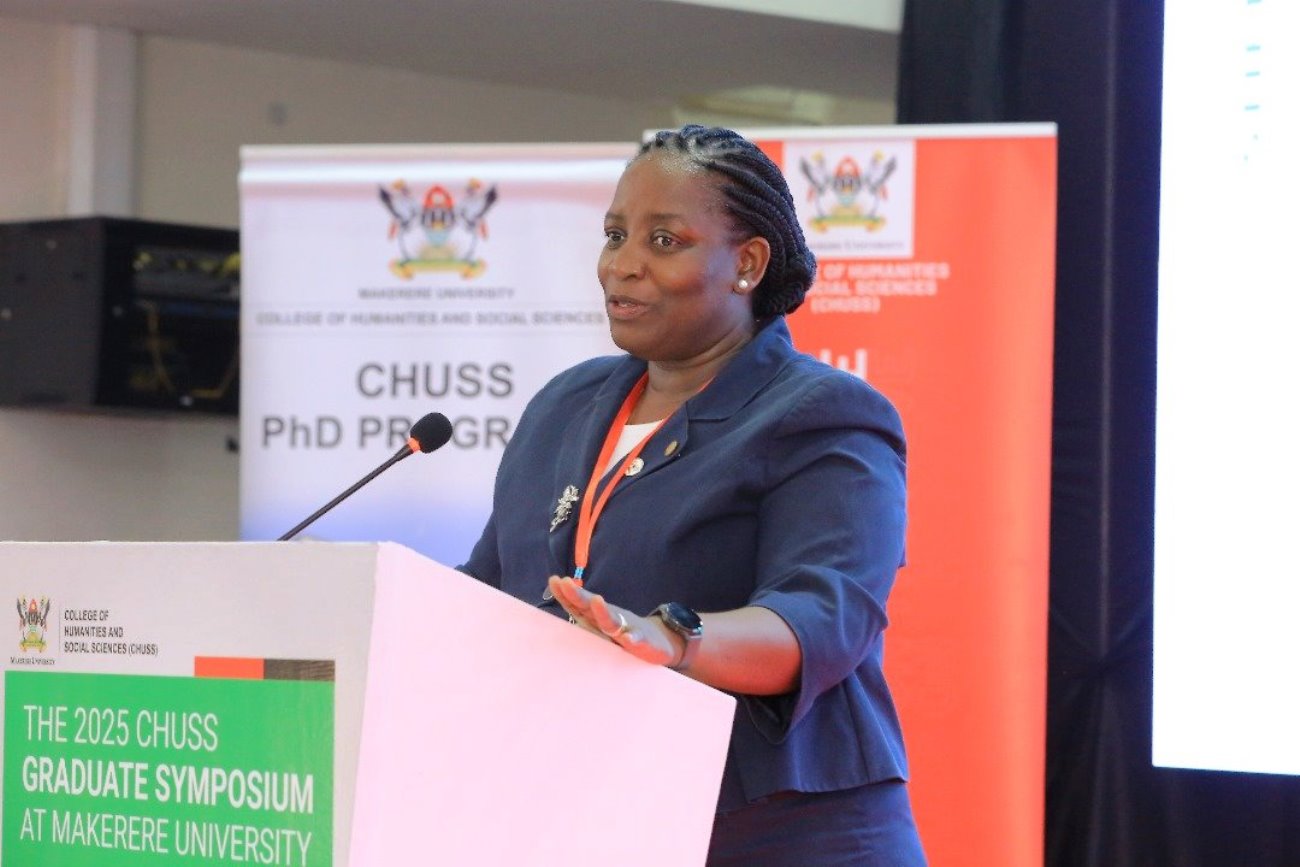
Prof. Helen Nambalirwa Nkabala, Principal of CHUSS, underscored the College’s intentional approach to graduate success. “You are in the mind of an excellent mind,” she said, encouraging students to continue striving for excellence and leadership in their respective fields. The 2025 CHUSS Graduate Symposium served as both a celebration of academic progress and a call to action for scholars to engage in meaningful research that addresses the needs of communities and contributes to national and global development.
The Writer is an Intern in the Public Relations Office, Makerere University
Trending
-

 Education1 week ago
Education1 week agoAdmission List to Bachelor of Education External (BED) 2025/26 -Private Sponsorship
-

 General2 weeks ago
General2 weeks agoUndergraduate Admission List Self Sponsorship Scheme 2025/2026
-

 General4 days ago
General4 days agoRe-advert: Admission to Undergraduate Programmes 2025/2026
-
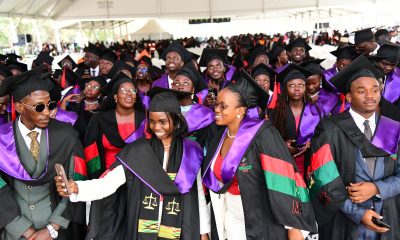
 General1 week ago
General1 week agoAdmission Lists for – Bachelor of Laws 2025-26
-
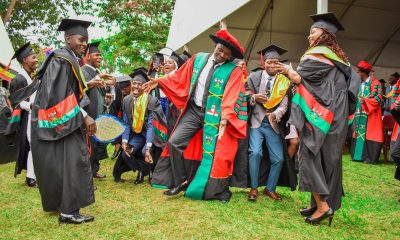
 General1 week ago
General1 week agoDiploma/Degree Holders Scheme – Self Sponsorship Admission Lists 2025/26
